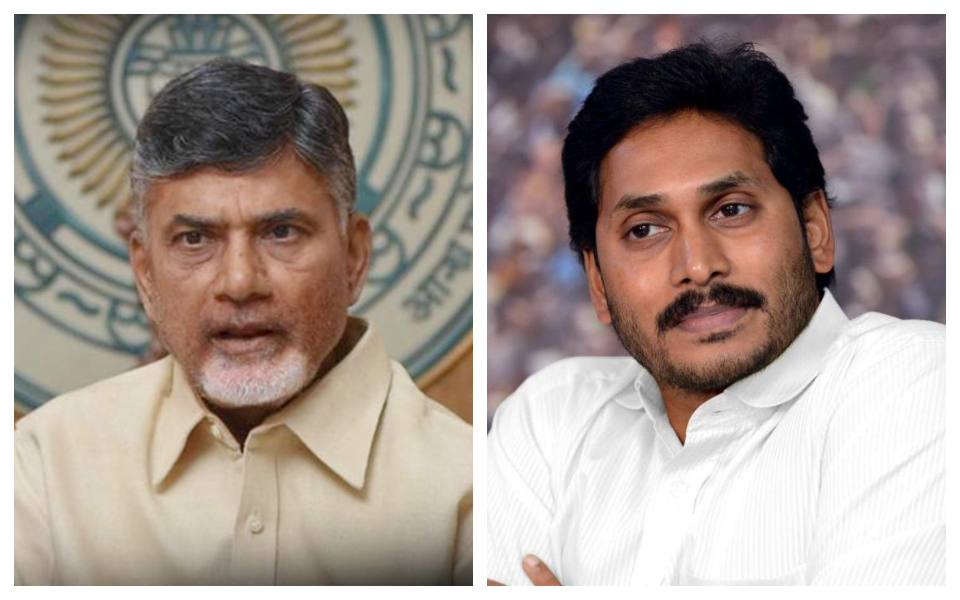
Jagan's AP council dissolution move more of a political point-making
A roadblock for some and a rehabilitation centre for others, the Legislative Council has been an instrument of political abuse in the combined Andhra Pradesh for years.

A roadblock for some and a rehabilitation centre for others, the Legislative Council has been an instrument of political abuse in the combined Andhra Pradesh for years.
When the Jagan Mohan Reddy government decided to abolish the opposition-dominated Council and moved a resolution in the Legislative Assembly to this effect on Monday (January 27), the move did not come as a surprise.
In fact, it fit into a familiar pattern where the Upper House was often used as a battleground to settle political scores. The bicameral legislature was a source of friction between the Congress and Telugu Desam Party in the past too.
What provoked the YSR Congress Party government to do away with the 58-member Council was that the Upper House had last week blocked two crucial bills on creation of three capital cities—Visakhapatnam as executive capital, Amaravati as legislative capital and Kurnool as judicial capital.
Also read: Andhra assembly passes resolution to abolish TDP-dominated Upper House
Shifting of the capital from Amaravati to Visakhapatnam has become a prestige issue for Jagan who appears to be keen on erasing the political legacy of his bete noir and former Chief Minister N Chandrababu Naidu. Amaravati is the brainchild of Naidu who conceived it as ultramodern Greenfield capital that India had ‘never seen before’.
After alleging “insider trading” in Amaravati project and accusing the Telugu Desam Party leaders of benefiting from it, the YSRCP government came up with the three capital idea on the ground that it would ensure decentralisation of administration and balanced regional development.
In the new model, Amaravati, the grandiose Rs 1 lakh crore project envisaged by Naidu, will be reduced to holding a couple of assembly sessions in a year while the entire focus will be on the port city of Visakhapatnam in north coastal region.
Following NTR’s footsteps
By abolishing the Upper House, Jagan is following the footsteps of the TDP founder and former Chief Minister late N T Rama Rao who scrapped the Council in 1985 which was then dominated by the Congress.
Interestingly, the present government is citing the same reasons that NTR had given while opting for abolition: unproductive expenditure for the state exchequer to maintain an un-elected, un-representative body essentially meant to distribute political favours to out-of-work politicians, causing delays in passing purposeful legislation.
NTR too faced hurdles in the Upper House as it blocked several important legislations of his government.
Also read: AP Cabinet clears proposal to abolish Legislative Council, assembly to follow
Ironically, it was Jagan’s father and former Congress Chief Minister late Y S Rajasekhar Reddy who revived the Council in 2007. This was done mainly to accommodate several party seniors who had either lost the elections or did not have the political muscle to get elected as MLAs. The Council over the years has been a rehabilitation centre for several such leaders.
When the Council was revived in 2007, Chandrababu Naidu, who was the opposition leader in the Assembly, had criticised the move, dubbing it as a burden on the exchequer and had boycotted its inaugural programme. Incidentally, Naidu’s son Nara Lokesh is the Member of Legislative Council (MLC) now.
The legislative council in a bicameral legislature, is established as defined in Article 169 of the Constitution. The power to create or abolish such a body in any state rests with Parliament, on the basis of an appropriate resolution being adopted by a two-thirds majority in the respective state legislative assembly.
Also read: After three-capital bill hits roadblock, Jagan may abolish Legislative Council
“I believe in checks and balances in the functioning of the legislature. However, what we have witnessed in the Council is the flagrant violation of principles and deliberate attempts to block the government bills. Is it necessary to continue the Council? It is costing Rs 60 crore for the government every year,” Jagan said in the Assembly while condemning the TDP-dominated Council’s decision to refer the bills on capital shifting to the select committee.
The twin bills— one on repealing the AP Capital Region Development Authority (APCRDA) Act enacted in 2014 to develop Amaravati as the state capital and another on creation of three capitals as part of de-centralised administration, were passed by the Assembly on Monday (January 20).
But, they hit a roadblock in the Upper House where TDP has majority with 28 members as against 9 from the YSRCP while BJP has two, Progressive Democratic Front (PDF) 5 and independents 3. Three seats are vacant.
Swift moves
A crucial cabinet meeting, chaired by Chief Minister earlier in the morning, approved the draft bill to abolish the Upper House. Soon after, it was introduced in the Assembly by the Chief Minister, setting off an acrimonious debate in the House.
Also read: AP’s three-capital quagmire holds too many challenges for state govt.
The passage of the bill is a mere formality, given the overwhelming majority of the YSRCP which has 151 MLAs in the 175-member Assembly. The bill will then be sent to the Union Home Ministry for approval in the Lok Sabha and Rajya Sabha. The bill will have to be cleared by both the Houses of Parliament before it can be sent to the President of India for his assent.
All eyes on BJP
It remains to be seen whether the Centre would readily approve the decision to abolish the Council or seek certain clarifications from the state government. The BJP has remained silent on the issue so far. Interestingly, during the voting on the opposition-sponsored resolution in the Upper House under Rule 71 (disapproving the government’s three-capital move), the BJP members remained neutral. The saffron party has two members in the Council.
The state BJP leaders have been opposing shifting the capital from Amaravati.


